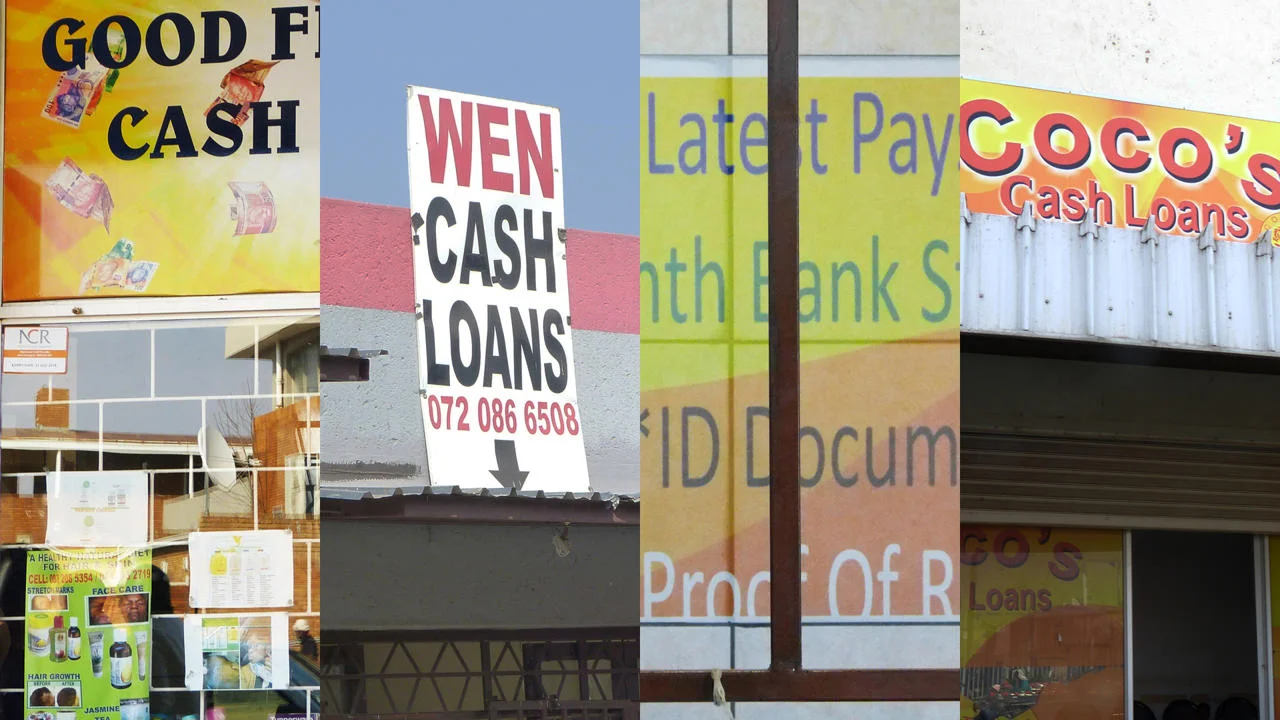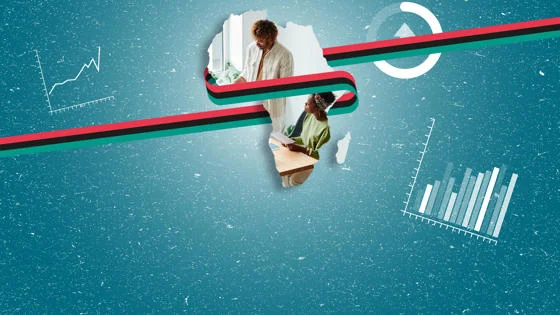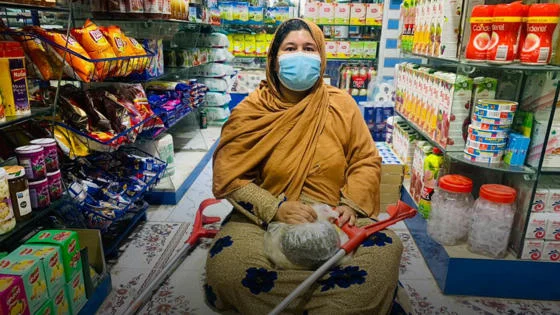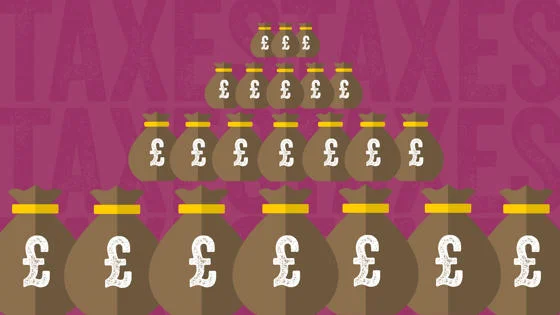Tackling reckless lending and indebtedness in South Africa

Contents
The legacy of apartheid for South Africa has been racialised inequality and structural poverty. Under apartheid, most black South Africans were excluded from formal credit. In the 2000s, after democratisation, the government began a national project of financial inclusion – dubbed "banking the unbanked" – which aimed to extend credit to black South Africans as a key aspect of broad-based economic enfranchisement.
In 2015, Deborah James, Professor of Anthropology at LSE, published Money from Nothing: Indebtedness and Aspiration in South Africa. Her bookexplored the dynamics surrounding this project, revealing the varied ways in which lower-to-middle class South Africans' access to credit is intimately bound up with identity, status-making and aspirations of upward mobility. She drew out the deeply precarious nature of both the aspirations of, and the economic relations of debt which sustained, her subjects.
Welfare payments as loan collateral
"What I became aware of, as time went by, was that there was a whole lot more indebtedness going on," James told a virtual audience at a recent LSE Research Showcase event. South Africa has a relatively good social welfare system - the state gives 18 million people social grants, including children under 18, adults over 60 and people with disabilities, which is almost twice as many people as access incomes from waged work (10 million).
The state does not, however, provide for those aged 18 to 59 with no or little income. This is exacerbated by the failure of state systems to provide adequate education and healthcare, leaving many social grant recipients supporting multiple family members or facing basic costs beyond those which their grants can cover, who must therefore rely on credit to get through the month.
She explains: "Social grants, or what we would call welfare payments… were being paid out to people, but then immediately serving as collateral for loans." This realisation led her to form a partnership with the human rights NGO Black Sash. "Since democratisation, a lot of its effort has gone into fighting what the Black Sash director calls the ‘looting’ of pensions and child support grants by money lenders," she explains. Together, they set out to discover the extent of reckless lending going on to recipients of welfare grants.
The paradox of financial inclusion
I didn’t know about this credit thing, until I got my grant.
Despite the government policies of the 2000s to extend credit opportunities (opening lending to the more affluent middle classes featured in her book), the poorest South Africans, particularly those receiving social grants, were still effectively excluded from the formal credit market until 2012.
At that point, the South African Social Security Agency (SASSA) signed a contract with Cash Paymaster Services (CPS), a private company, to disburse social grants, opening nearly 10.5 million SASSA-branded Grindrod Bank accounts. "Of course, they made it extremely easy for these people to get the money in the first place, but also to have… loans sold to them," she explains.
More importantly, or more damagingly, the regular and reliable payments of grants into bank accounts represented minimal risk for lenders and enabled the expansion of the lending market beyond the (relatively) more reasonable and regulated banking products, to the informal market of cash lenders, pay lenders, one-time lenders, "Chinese" lenders and mashonisas (or loan sharks) who offered significantly less preferable interest rates (anything from 30-100 per cent per month).
Every time we spoke about curbing the opportunity to use the cash payment for this kind of loan collateral, lawyers and others pointed out that South Africans fought for the right to these payments, and it is their right to own them.
James continues: "The paradox that our research revealed is that the advent of democracy saw the roll out of welfare payments to millions of people who had never had them, but it also saw a new emphasis on financial inclusion and that meant that those previously denied credit should be able to get it, and the two came together in a perfect storm of borrowing."
The CPS contract was eventually transferred to the Post Office, but the culture and infrastructure were already in place to sustain this informal lending industry.
Tackling the legal problem
There was certainly fraud and bad practice that took advantage of loan recipients, but James notes, "it was really the legal element we found ourselves having to tackle. The illegalities were one thing, but the things that were able to be done within the law were the things that really preoccupied us."
As detailed, these loans are low-risk, the regular payment of grants into bank accounts secures repayment to creditors, but they are not priced as such. "People at the very bottom of the pile are disadvantaged by the terms that are allowable, because even though there is a cap on the interest rate, there are other things, like the so-called initiation fee and extra add-on fees that ultimately turn what should be a small repayment, especially given the guaranteed nature of the welfare payments, into a really large repayment instead."
The solution is not as simple as you may think
"Every time we spoke about curbing the opportunity to use the cash payment for this kind of loan collateral, lawyers and others pointed out that South Africans fought for the right to these payments, and it is their right to own them," James explains. She is clear that the grant recipients themselves would not advocate for the dismantling of this lending system altogether – the different types of borrowing available allow those who need more money than they earn to access more by various means according to their circumstances and priorities. But how can the infrastructure be better managed to avoid the unreasonable exploitation of the poorest in society?
The project report recommended a series of actions and the team engaged with authorities in the government, lawyers and NGOs to try to put these into place, from the funding of debt advice through a levy on creditors to the provision of training to paralegals who could support those in particular difficulty. But, James explains, they are still struggling with "the clash between protection and regulation on the one hand, and the freedom to use your property as you want, even including being screwed over by horrible lenders in different parts of the financial system."
She concludes, "similar things are going on in Chile, in Argentina and around the world as increasingly welfare is being given out simply as cash transfers rather than broader provision for health systems, educations systems and so on.
"Welfare is supposed to be about minimising risk, about putting people into a more secure situation, but if you can use your welfare payment as collateral for loans which you then repay, you are at risk. Debt is about being at risk and welfare is supposed to be the opposite, and somehow these two things have been brought into a very uncomfortable juxtaposition."
This LSE Research Showcase was written up by Louise Jones, Head of Research Communications and Engagement at LSE.
Image: Deborah James.
Download a PDF version of this article




